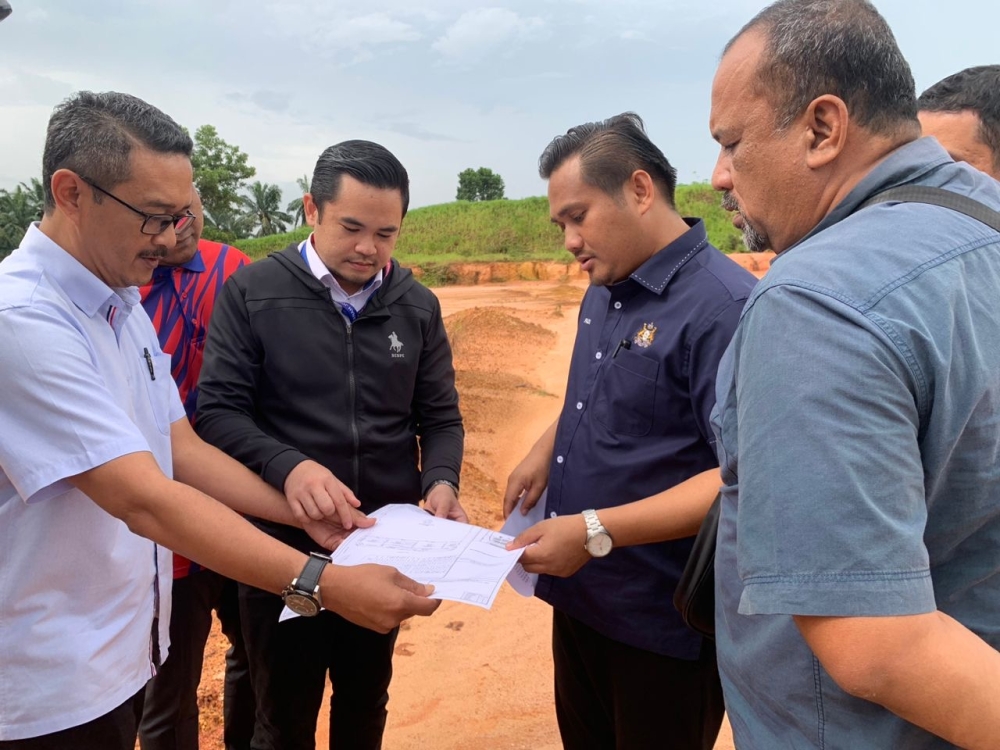JOHOR BARU, Nov 14 — The Johor government called on residents to be pro-active and lodge complaints about damaged or clogged waterways in their area ahead of the north-east monsoon season which starts this month until March next year.
State Public Works, Transport and Infrastructure Committee chairman Mohamad Fazli Mohamad Salleh said the reports were necessary so that immediate action can be taken to avoid incidences of flooding in their respective areas.
He called on residents to report damaged or clogged drains, ditches and rivers to their community leaders, village heads, as well as district or municipal officials.
“We hope to gather feedback, especially from social media, on such matters to improve the flow of rainwater during the monsoon.
“This initiative was carried out after we realised that rainwater exceeded the existing drainage capacity when floods hit the state in March last year,” he told reporters after visiting a temple relocation site at Taman Eko Flora here today.
Mohamad Fazli said the authorities have been preparing to tackle the issue before the onset of the monsoon period.
“So far, most of the rivers and ditches (in the state) have been maintained, with the Drainage and Irrigation Department (DID) and local authorities actively undertaking maintenance work,” he said.
As for the roads in Johor that were damaged due to the floods last March, Mohamad Fazi said that repairs had been carried out in phases, with some already completed.
“There are still some stretches in several districts that are being repaired, while others are waiting to be upgraded,” he said, adding that Segamat roads had been the most badly damaged the floods.
Mohamad Fazl, who is the Bukit Pasir assemblyman, said the total cost of repairs to roads damaged during last year’s floods was RM160 million.
He explained that the damage not only involved the structure and the road surface, but also collapsed ditches and slopes as well as culvert replacements.
Meanwhile, Mohamad Fazli said that a total of three Hindu temples will be moved to new sites as their original location is in the way of the Gemas-Johor Baru Electric Train System (ETS) double tracking project which is scheduled to be operational by April 2025.
He explained that the relocation process was originally scheduled for November 1, but that it was postponed to accommodate the Deepavali celebrations.



















